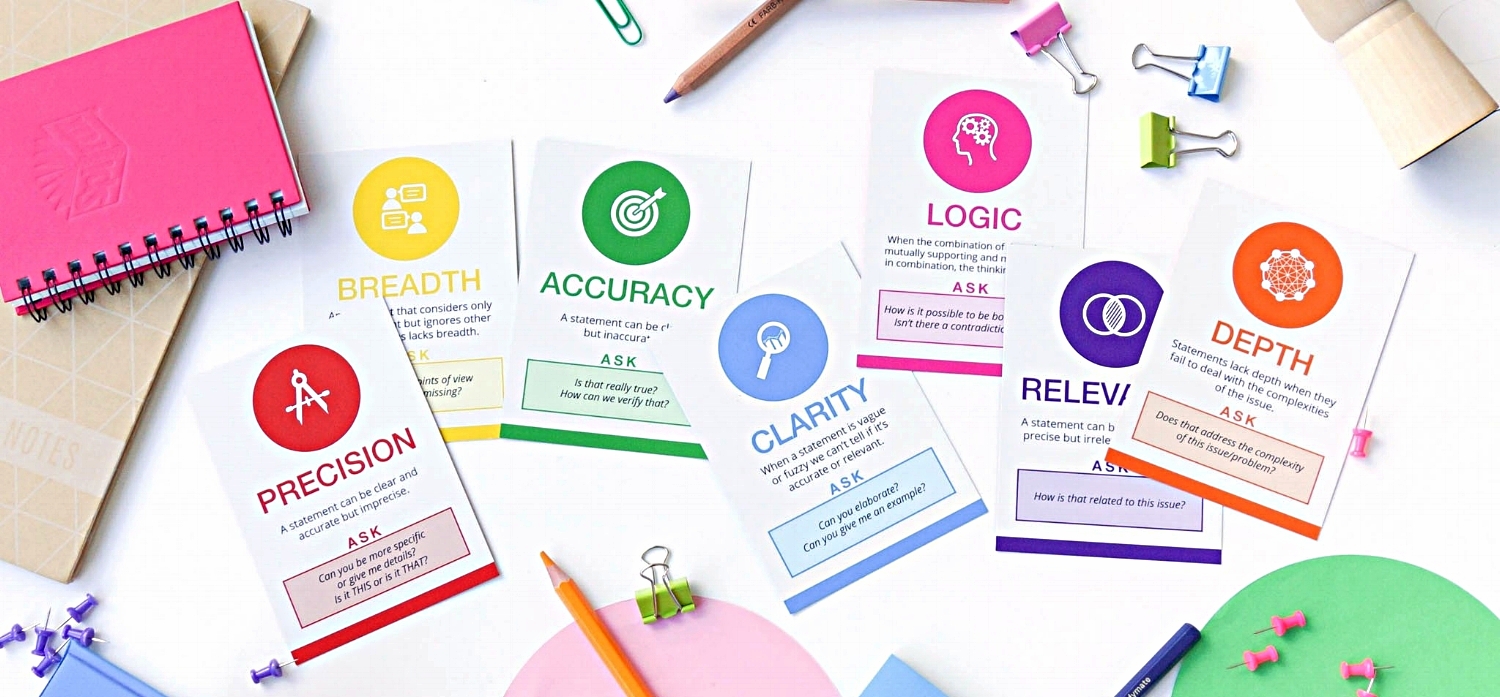How PARTICIPANTS understand complex data IN DELIBERATIONS?
MosaicLab is excited to be working with Dr. Lyn Carson of Active Democracy to conduct some exciting active research around critical thinking. We are actively learning about how groups can best work together within deliberative spaces.
Through this project we are considering how participants might evolve their own frameworks to assess data and we are currently trialing this work through a series of citizens' juries.
Our findings are due to be published in 2017. Additionally, we are building some exciting critical thinking tools that will be available for everyone to use.
Critical thinking - an overview
Critical Thinking is the ability to interrogate information (presentations, documents, etc.) and critically assess if the information is adequately addressing the information needs of the group or topic.
This is something we do all the time when making choices in life and it requires us to weigh up information carefully. The act of bringing these skills out more overtly during deliberative processes may help participants to think more broadly about the information or topic and become less entrenched in their own personal view.
One possible way to encourage participants to interrogate and critically assess information is to
1. Outline what critical thinking skills are,
2. Focus on one skill area to start with,
3. Later in the process, try other skills until all the essential thinking skills are practised.
VIDEO: 'Do You Think?' explains basic critical thinking standards.
Key Thinking Skills and Questions
Below are key critical thinking skills and some questions that might relate to each one. There are many more questions you could ask - but these questions will help you to get started.
CLARITY When a statement is vague or fuzzy we can’t tell if it’s accurate or relevant. We should ask for clarification.
Ask: Can you elaborate? Can you give me an example?
PRECISION A statement can be clear and accurate but imprecise.
Ask: Can you be more specific or give me details? Is it THIS or is it THAT?
RELEVANCE A statement can be clear, accurate, precise but irrelevant to the issue.
Ask: How is that related to this issue?
DEPTH Statements lack depth when they fail to deal with the complexities of the issue.
Ask: Does that address the complexity of this issue/problem?
BREADTH An argument that considers only one viewpoint but ignores other perspectives lacks breadth.
Ask: What others points of view might we be missing?
LOGIC When the combination of thoughts is mutually supporting and makes sense in combination, the thinking is logical.
Ask: How is it possible to be both X and Y? Isn’t there a contradiction there?
Statements need to pass the above checklist to be defined as good thinking.
Perfect for sharing, printing or filing away for future use. Click the image to subscribe to our monthly e-newsletter 'The Discussion' and grab our printable critical thinking 'starter kit' - an overview of key critical thinking skills and some questions that might relate to each skill. Great for use as a prompt or handout when discussing critical thinking in group settings.
Update: Critical Thinking Research
Go to our interviews with the Researcher (Lyn Carson of Active Democracy and the newDemocracy Foundation) and the Facilitator (Nicole Hunter, Co-founder, MosaicLab) as they share insights into the challenges, surprises and interim findings of this study.
ENJOYED THIS POST?
Stay in the know! Get new posts, actionable ideas and fabulous free resources delivered to your inbox - subscribe to our monthly e-newsletter 'the Discussion'.



